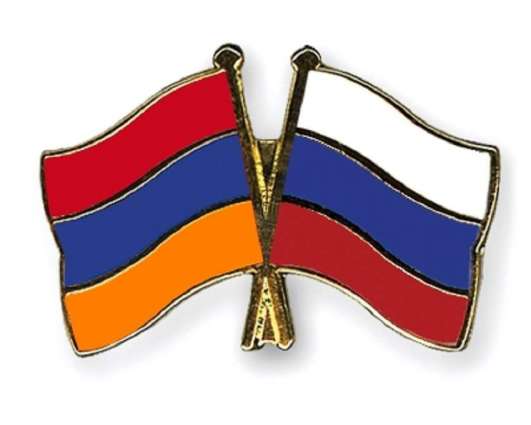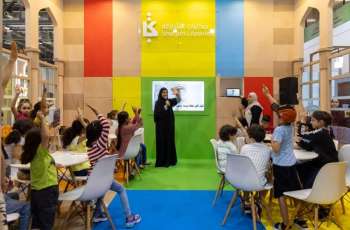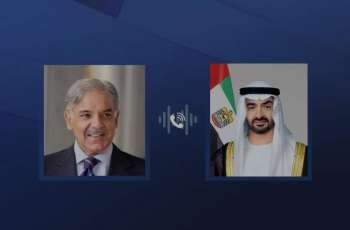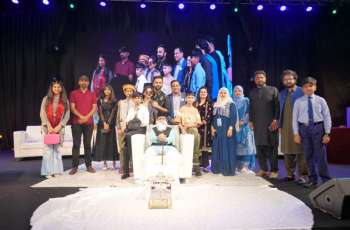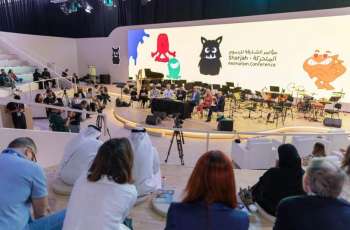Russian President Vladimir Putin and Armenian Prime Minister Nikol Pashinyan have taken part on Wednesday in the Eurasian Economic Union (EAEU) summit in the Kazakh capital of Nur-Sultan
MOSCOW (Pakistan Point News / Sputnik - 29th May, 2019) Russian President Vladimir Putin and Armenian Prime Minister Nikol Pashinyan have taken part on Wednesday in the Eurasian Economic Union (EAEU) summit in the Kazakh capital of Nur-Sultan.Diplomatic relations between Russia and Armenia were established on April 3, 1992.
Since then, the two countries have signed over 200 interstate, intergovernmental and interagency treaties and agreements. Fundamental documents include the Treaty of Friendship, Cooperation and Mutual Assistance from August 29, 1997, and the Declaration of Allied Cooperation in the 21st Century between Russia and Armenia, which was signed on September 26, 2000.
Russian-Armenian relations are defined by regular top- and high-level contacts. They includes a large number of bilateral meetings between then-Armenian President Serzh Sargsyan, who served as the head of state from 2008 to 2018, and Putin.
Sargsyan made his first state visit to Russia on October 23-25, 2011. Putin reciprocated by traveling to Armenia on December 2, 2013.
The two leaders proceeded to meet numerous times in 2014. The first time was on the sidelines of the informal Collective Security Treaty Organization (CSTO) summit in Moscow on May 8, then in Sochi for Nagorno-Karabakh peace talks on August 9, and again in Moscow on November 6 and December 24.
On April 24, 2015, Putin visited Armenia to participate in events dedicated to the 100th anniversary of the genocide of Armenians in the Ottoman Empire and hold talks with Sargsyan.
From May 8-9, 2015, the then-Armenian president was in Moscow to take part in celebrations marking the 70th anniversary of Russia's victory in the Great Patriotic War.
In 2016, the two presidents had three full-fledged bilateral meetings. They met in Moscow twice during Sargsyan's working visits on March 10 and August 10, and in St. Petersburg on the sidelines of the trilateral summit on Nagorno-Karabakh settlement on June 20.
That year also saw the leaders take part in a Supreme Eurasian Economic Council (SEEC) meeting in Astana on May 31, meeting of the Commonwealth of Independent Nations (CIS) Heads of State Council on September 16 in Bishkek, and session of the CSTO on October 14 in Yerevan. They also met during the EAEU and the CSTO in St. Petersburg on December 26.
In 2017, Sargsyan came to Moscow for an official visit on March 15 and to Sochi for a short working visit on August 23. The presidents met again in Moscow on November 15 of that year, during which time they attended a ceremony marking the start of the Armenian Culture Days in Russia.
The two leaders continued to meet at various events and forums in 2017. They included the SEEC meeting in Kyrgyzstan and informal meeting of the heads of the CSTO member states in April; meetings of the CIS Heads of State Council and the SEEC in Sochi on October 11; a CSTO session in Minsk on November 30; and informal meeting of the heads of the CIS member states in the Moscow region on December 26.
In March 2018, Armen Sarkissian won the presidential election in Armenia, and on April 25 of that year Putin held a telephone conversation with the new leader.
On May 8, 2018, Putin had a telephone conversation with new Armenian Prime Minister Nikol Pashinyan to congratulate him on taking office.
The first meeting between Putin and Pashinyan took place on May 14 on the sidelines of the EAEU summit in Sochi.
On June 13, 2018, the Russian leader met with Pashinyan in Moscow for the opening of the FIFA World Cup.
Then Sarkissian traveled to Moscow, where he stayed from July 14-15, to attended a gala concert starring world opera stars at the Bolshoi Theater ahead of the FIFA World Cup final and then the final itself and closing ceremony the following day.
On September 8, 2018, Pashinyan paid a working visit to Moscow and met with Putin. They discussed key issues regarding the development of Russian-Armenian relations and cooperation in the Eurasian region, in particular, within the EAEU and the CSTO.
Twenty days later, Putin and Pashinyan took part in a meeting of the CIS Council of Heads of State in Tajikistan's capital of Dushanbe. They also met on November 8 at the CSTO summit in the Kazakh city of Astana, and on December 6 at the session of the SEEC and during an informal CIS summit in St. Petersburg.
On December 27, 2018, Putin held talks with Pashinyan who arrived in Russia for a working visit.
The governments of the two countries have also been developing a constructive relationship.
From January 24-25, 2017, then-Armenian Prime Minister Karen Karapetyan came to Russia for an official visit.� Russian Prime Minister Dmitry Medvedev reciprocated with a trip to Armenia from October 25-27 of that year.
On June 14, 2018, Medvedev met with Pashinyan to discuss key issues regarding bilateral trade, economic and humanitarian cooperation.
On January 25, 2019, negotiations between Medvedev and Pashinyan took place in Moscow at Armenia's initiative, during which the heads of government discussed key issues relating to Russian-Armenian trade and economic cooperation.
The prime ministers met again on April 29 of that year to hold talks prior to a Eurasian Intergovernmental Council meeting in Yerevan.
The governments of the two countries continue to maintain regular contacts through the CIS and the EAEU.
The countries are also engaged in active contacts at ministerial and departmental levels and actively develop interparliamentary ties.
On June 7, 2018, Foreign Minister of Armenia Zohrab Mnatsakanyan came to Moscow for a working visit.
Three and a half months later, on September 26, Mnatsakanyan and Russian Foreign Minister Sergey Lavrov had a conversation in New York on the sidelines of the 73rd session of the United Nations General Assembly.
The top diplomats met again this year on February 16 on the sidelines of the Munich Security Conference.
The two countries have correlating positions on most of the key international problems and cooperate on various international platforms, including the United Nations, the CIS and the CSTO.
Russia along with the United States and France co-chair the Organization for Security and Co-operation in Europe (OSCE) Minsk Group, which plays an active mediating role in the Nagorno-Karabakh conflict.
Last month on April 15, a working meeting of the foreign ministers of Russia, Armenia and Azerbaijan was held in Moscow at Russia's initiative to discuss the prospects for advancing the negotiation process in the Nagorno-Karabakh peace process.
Russia is Armenia's key foreign trade partner, and bilateral economic cooperation is only improving.
In 2018, the bilateral foreign trade increased by 12.7 percent year-on-year, amounting to $1.97 billion. Meanwhile, Russian exports and imports came out to $1.34 billion and $630 million, respectively.
Russian exports to Armenia include minerals and metals, machinery, food and agricultural products, and equipment and transport systems. Imports include food and agricultural goods, textiles and footwear, and precious metals and stones.
The Russian-Armenian Intergovernmental Commission for Economic Cooperation is working effectively and has recently met in the Russian city of Rostov-on-Don in April.
Russian Railways, international group of mining companies GeoProMining Gold, VTB Bank and aluminum giant Rusal are among the largest Russian companies operating in Armenia.
Russian-Armenian defense industry cooperation is aimed at ensuring the security of both countries and the southern flank of the CIS, as well as stability in the Trans-Caucasus. The Armenian Armed Forces perform alert duty missions as part of the CIS Integrated Air Defense System, and the 102nd Russian military base is located in the republic. Russia and Armenia also have a joint military force.
In April 2016, the two governments signed an space cooperation agreement. In this context, a Russian Global Navigation Satellite System (GLONASS) station opened on the territory of the Byurakan Astrophysical Observatory in Armenia in December 2018.
Cultural and humanitarian contacts traditionally play an important part in Russian-Armenian relations. In 2016, Armenia successfully organized the Days of Russia, Week of Russian Cinema, Days of Moscow and St. Petersburg, and Days of the Russian Word festivals. The following year, the Days of Armenian Culture were held in Russia.
Armenia is very popular among Russian tourists, with 684,000 of them traveling there in 2018 alone.
